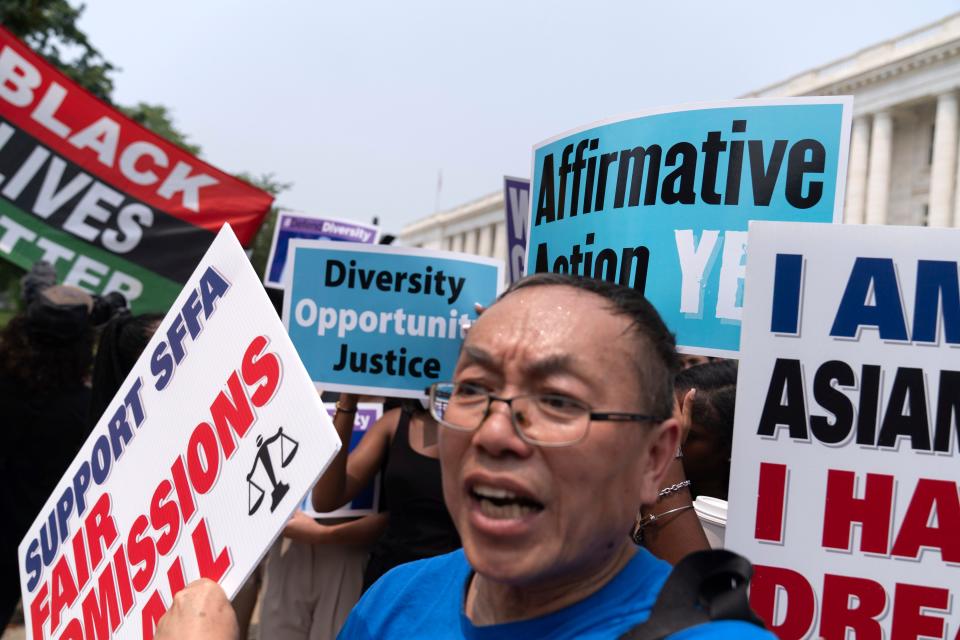How the end of affirmative action could be better for students and communities | Opinion
At a moment when diversity and equity efforts have been normalized across many organizations, including the University of Tennessee, the U.S. Supreme Court’s recent decision on affirmative action has been derided by progressives and legal academicians as a step in the wrong direction.
Affirmative action was instituted in the 1970s to make up for a parlous history of racial exclusion at public universities and elite schools. Problematically, though, colleges and universities nationwide chose to focus monographically on affirmative action as a means to admit Black and Hispanic students. Affirmative action became an easy shortcut to diversity.
The result has not always been positive. Affirmative action has often reinforced negative stereotypes, making it harder for Black and other minority students to find mentoring and employment. Affirmative action was convenient for employers, making it easier for them to avoid devoting resources and political capital to address the racial achievement gap.

Even worse, fearing their admissions policies will reinforce harmful stereotypes, elite schools have been dishonest about the degree to which they rely on race as a factor in admissions, breeding cynicism and antipathy among Asian and white students. The phenomenon has been articulated by Black public figures such as Supreme Court Justice Clarence Thomas and public intellectuals such as John McWhorter and David Wilkins.
Our system of admissions has been focused on social advantage, not diversity. A recent study found that 43% of Harvard’s white students were recruited athletes, legacy students, children of faculty and staff, or on the dean’s interest list (in other words, donors to Harvard). Black and Hispanic students are either not recruited or are admitted with less financial and social support, explaining why most are reliant on non-dischargeable student loans as compared with white and Asian students.
Hear more Tennessee voices: Get the weekly opinion newsletter for insightful and thought-provoking columns.
Disallowing the use of race as an admissions factor could finally create an incentive for schools to amend admissions policies that favor social advantage over academic potential. The end of affirmative action in admissions will also force universities to find allies within Black and Hispanic communities to address unjust allocation in preschool and K-12 education.

Although the end of racial affirmative action in higher education will dramatically reduce the number of Black and Hispanic Americans at elite schools in the near term, it potentially will, over time, lead to a much-needed liberalization of student admissions. A far better approach to the current system is to measure resilience and educational promise based on a totality of factors, including socioeconomic disadvantage.
An auspicious example is in practice at the University of California-Davis, which adopted an education resilience admissions policy to maintain student body diversity. Kimberly J. Robinson writes that racial diversity in admissions might be sustained if schools treat education disadvantage, as opposed to race, as a plus factor in admissions. Admissions policies that reject the use of race have the added benefit of depoliticizing the issue of higher education diversity and destigmatizing the achievements of Black, Hispanic and Native American graduates. It might also force the country’s elites to finally address the thorny issue of unequal access to preschool and K-12 education that explains why affirmative action has been a divisive, polarizing and lamentably ineffective shortcut to diversity.
M. Akram Faizer is a professor of law at Lincoln Memorial University’s Duncan School of Law.
This article originally appeared on Knoxville News Sentinel: Opinion: How end of affirmative action could be better for students

